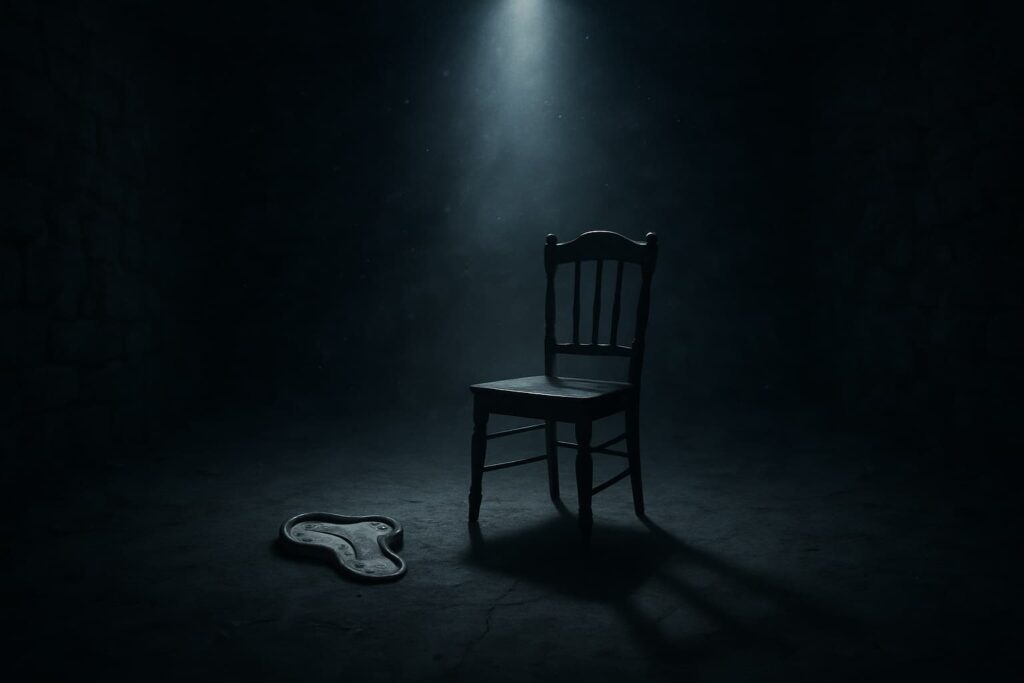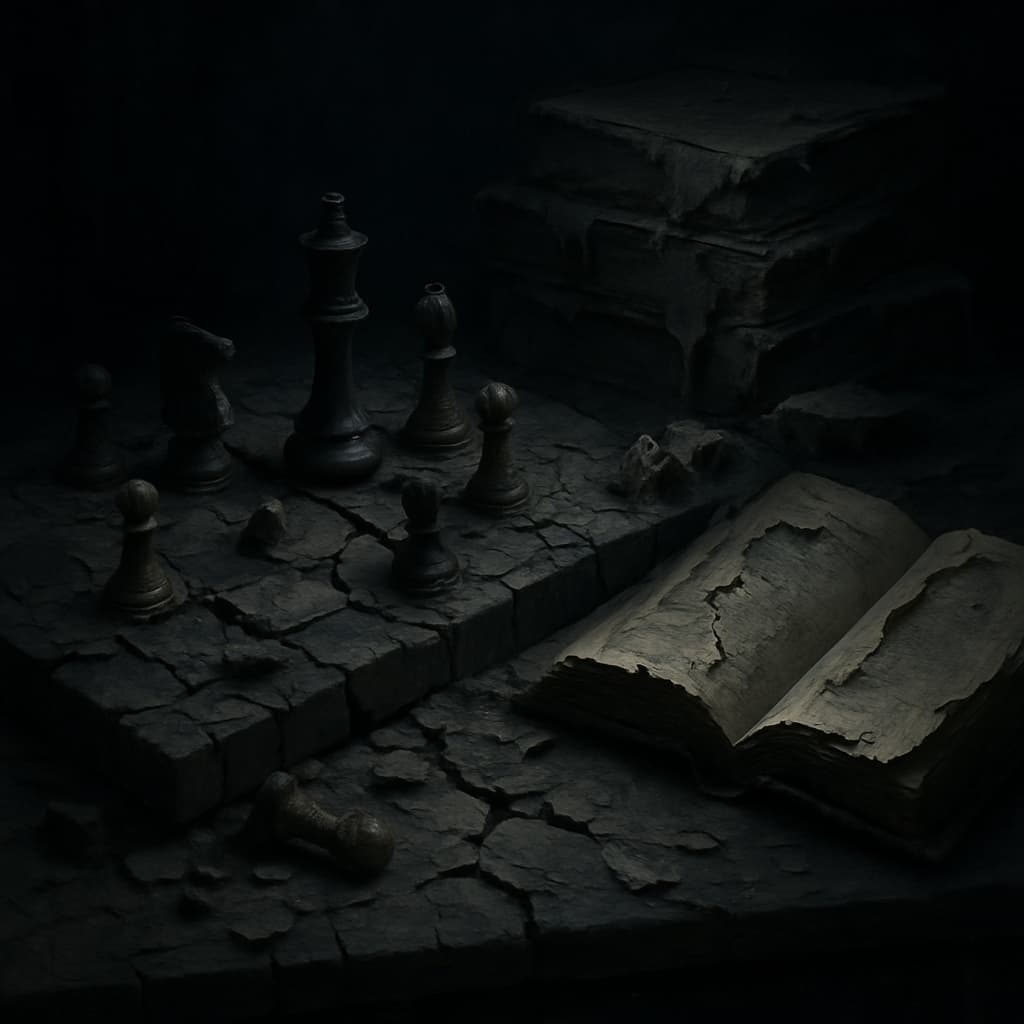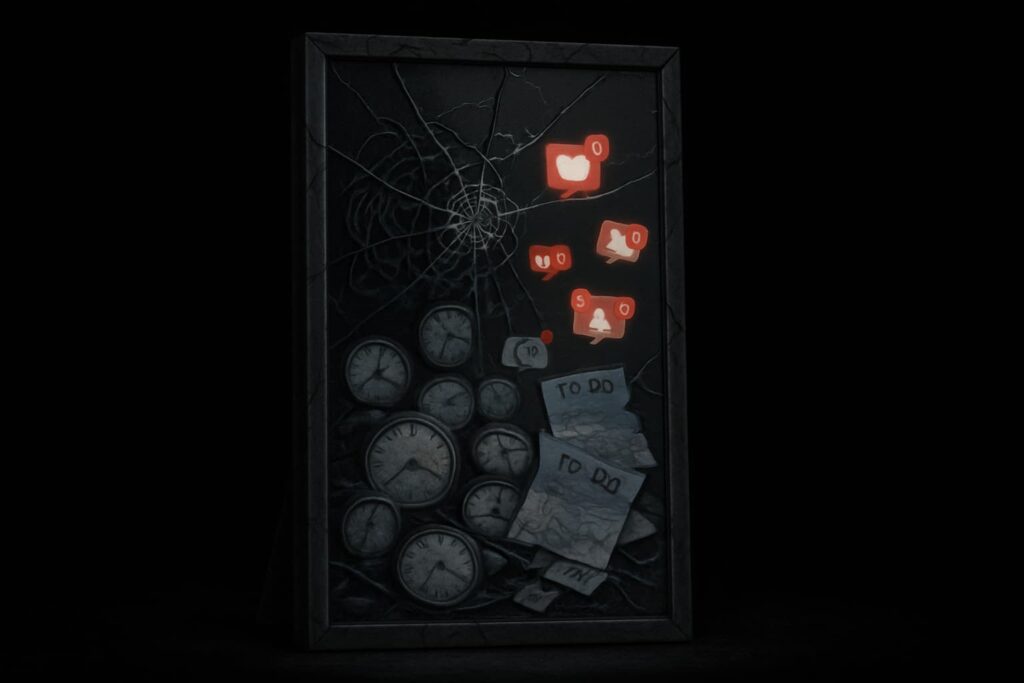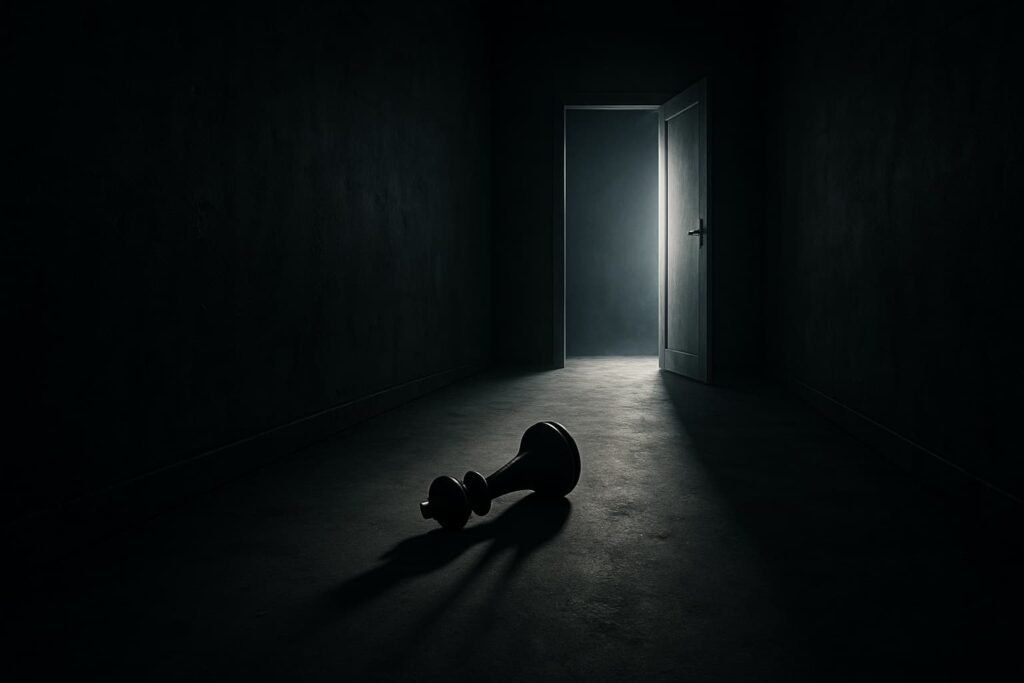What if There Was a Room Where Time Stood Still?
We often dream about mastering time and self-discipline.
What if you could pause everything—escape the noise, the deadlines, the distractions?
But maybe, just maybe, the real enemy isn’t time.
Maybe the problem is… you.
Let’s find out.
1. Set the Idea

Imagine having all the time in the world — and wasting it anyway.
There is a room. No doors, no clocks, no windows. Inside it, time stands still. Ten years in there, and not a single second ticks forward in the real world. You could spend a century mastering an art, rewriting your story, becoming something… more. When you leave, nothing has changed outside. A minute later, a millennium lived.
To some, it sounds like salvation. A divine cheat code. A sanctuary for the overwhelmed and the underachieving. But in truth, it’s a padded cell disguised as paradise. A mirror chamber that amplifies only one thing: you. Not your potential. Not your dreams. Just your patterns, excuses, and the quiet rot of your will.
Time doesn’t flow in this place, but you do. You grow old, bitter, twisted, enlightened, deranged — depending on what you carry in with you. It changes nothing… except the person who thought change was possible.
Welcome to eternity. No ticking clock. No one to blame. Just you, and the lie you keep telling yourself.
2. Lucas, the Loser

He had charm. He had time. But not the will.
Lucas was 29. Once, he loved rainy afternoons and cheap coffee. He’d laugh too hard at bad movies and forget his umbrella more often than not. But beneath his charm was a deep frustration — the kind that quietly poisons ambition. He’d dabbled in chess for a decade and lost to everyone from schoolchildren to stoners. “I just need more time,” he’d say, slamming his laptop shut after another humiliating defeat.
And then he heard about the room.
He didn’t hesitate. If time was the enemy, this was the ultimate weapon. He stepped in with nothing but a chessboard, books, and a seething conviction: I will emerge a god of this game.
Year 3: Progress. He devoured theory, solved endgames, replayed grandmaster matches until they blurred into instinct. There was hope in his eyes, fire in his fingers.
Year 8: The walls began to breathe. He spoke only in variations and cursed his past self’s incompetence. He played against his own echoes. He dreamed in checkmate patterns.
Year 12: Silence. Books untouched. The board dusty. He stared for months at a position he once solved blindfolded. The purpose that brought him here decayed into abstract resentment. What was the point? he wondered.
Year 20: He walked out.
Outside, the tournament hadn’t even started. He sat down, trembling, across from a smug 17-year-old. The match lasted nine moves.
Lucas lost.
Not because he lacked the skills. But because he spent over a century mastering the wrong things — and avoiding the hard ones. He became brilliant at training, not at winning. He avoided fear, pressure, and the sharp edge of failure until the one moment he couldn’t.
He didn’t lose because he ran out of time. He lost because he never understood how to use it. The problem was never the clock. It was Lucas.
3. The Truth

You think you’re different. You’re not.
And now you.
You, reading this on a glowing screen, telling yourself you’d write that novel, start that business, get in shape, change your life if only you had more time.
What if I gave you a thousand years? No emails. No social media. No jobs. No distractions. Just you, your goals, and infinite time.
Would you finally do it?
You wouldn’t.
You’d sleep for a decade. Binge imaginary shows. Argue with hallucinations. Spiral into anxiety and apathy. You’d try. Then quit. Then rationalize the quitting. You’d create elaborate self-mythologies about your “potential” while doing absolutely nothing to realize it.
Time isn’t your obstacle. It never was. You are.
Humans aren’t wired to thrive in freedom. Give them chains, and they’ll fantasize about liberation. Give them liberty, and they’ll crawl back to structure, to pressure, to panic. You don’t want time. You want a deadline to blame when you fail.
You are Lucas. But without the courage to admit it.
4. Quiet Disaster

Time didn’t fail him. He failed himself. Just like you might.
Lucas stepped out after 20 years. The tournament hadn’t even started.
He lost anyway not because he ran out of time, but because he wasted it.
Not in there. Not out here. Not ever.
And maybe, deep down, so would you.
The room still stands. Silent. Waiting.
Just in case you want to prove you’re different.
But you won’t.
You never were.
You only liked to pretend.
Leave a Reply